SEO Isn't Dead. It is Thriving More Than Ever in the World of AI
SEO Isn't Dead - It's Thriving More Than Ever
In today's world, where AI is everywhere, Search Engine Optimization (SEO) is more important than ever for getting your business noticed online, building trust, and driving sales.
You've probably heard people say "SEO is dead" over and over. It's a catchy phrase that grabs attention, but it's not true. Search engine optimization (SEO) hasn't disappeared - it's just grown and changed with the times.
Busting the "SEO is Dead" Myth
The old way of doing SEO was simple: follow a checklist, stuff in some keywords, and hope for the best. But the internet isn't simple anymore. Search engines like Google now use AI to understand what people really want when they search.
The goal is still the same - get visible to attract customers - but how you do it has evolved. Businesses that adapt to these changes win more customers and keep them longer.
How SEO Has Evolved: From Basic to Advanced
In the beginning, it it was all about
keywords in page titles,
descriptions and getting links from other sites. Those basics still help, but they're not enough today.
Then search engines got smarter. They started focusing on the intent behind a search - what the person actually needs to solve their problem - not just the words they type. This meant creating content that's helpful, well-organized, and shows your expertise.
Now we have even a more advanced SEO. It's not just about one webpage ranking high. You need to think about the whole search results page, including AI summaries, quick answers, local business listings, videos, and images. Plus, use special code called schema to help search engines understand and trust your site.
Don't Get Distracted by Fancy New Terms
You might see buzzwords like GEO (Generative Engine Optimization) or AEO (Answer Engine Optimization). They sound cool, but they're not entirely new. They're just extras on top of good old SEO.
Stick to a solid SEO plan, and these can fit right in without confusing things. Chasing trends can waste your time; focus on the basics first.
Google Says SEO Still Counts
Google keeps reminding us: create helpful content, and it'll show up in more places, including their AI features.
If your pages load quickly, answer questions clearly, and prove you're a reliable source, Google will reward you by featuring your site.
Why Many Business Websites Aren't Ready
A lot of websites were built years ago and haven't been updated. They look okay, but they fall short in today's AI-driven searches.
Common issues include:
- Thin content that just repeats keywords without real value
- Messy site structure that makes it hard for search engines to explore
- Weak signals of expertise, experience, authority, and trustworthiness (what Google calls E-E-A-T)
- No schema code, so search engines can't easily "see" what your business is about
Fix these like you'd patch a leaky roof, and your site will perform much better.
What is E-E-A-T?
E-E-A-T is Google’s quality framework for evaluating websites and content. It stands for:
Experience
Has the author or site shown first-hand experience with the topic?
Expertise
Is the content written by someone knowledgeable in the subject?
Authoritativeness
Is the site or author recognized as a trusted source?
Trustworthiness
Is the content accurate, transparent, and safe for users?
Here are some ways to demonstrate E-E-A-T
Roofing Service
Experience:
- Post before-and-after photos of real roofing projects.
- Share short case studies about challenges (e.g., storm damage repairs) and how they were solved.
Expertise:
- Write blog posts like “How to Spot Roof Damage Before It Becomes a Problem.”
- Create videos showing common roofing issues and maintenance tips.
Authoritativeness:
- Display certifications (GAF, Owens Corning, OSHA, etc.).
- Highlight memberships in professional organizations (e.g., local Chamber, Better Business Bureau, etc).
Trustworthiness:
- Feature verified customer reviews/testimonials with names and towns.
- Show licensing and insurance information clearly on the site.
Paint Party Business
Experience:
- Share photos and videos of actual parties and events.
- Post stories of groups (bachelorettes, birthdays, team-building) who had a great time.
Expertise:
- Blog topics like “5 Tips for Hosting the Perfect Paint Party” or “Best Group Activities for Corporate Teams.”
- Include profiles of your instructors with their art background.
Authoritativeness:
- Showcase press mentions (local news, community calendars, blogs).
- Highlight partnerships with local venues or charities.
Trustworthiness:
- Understand what your audience is looking for when they land on your page. Are they seeking information, trying to solve a problem, or ready to make a purchase? Tailor your content to meet those needs directly. For example, if someone searches “how to choose a roofing service,” provide a guide with tips and your contact details at the end.
Personal Injury Lawyer
Experience:
- Share anonymized case studies: “How we helped a client recover medical costs after a motorcycle accident.”
- Post attorney bios with years in practice, education, and types of cases handled.
Expertise:
- Write articles like “What to Do Immediately After a Car Accident in Massachusetts.”
- Record short videos explaining legal terms or processes in plain English.
Authoritativeness:
- Highlight bar association memberships, awards, or recognitions.
- Publish articles in local media or legal directories.
Trustworthiness:
- Show testimonials (where ethically allowed) with client consent.
- Make your fee structure (e.g., contingency basis) clear and transparent.
- Include secure contact forms and confidentiality statements.
The New Rules: How to Play (and Win) the Modern SEO Game
We're not throwing out the old rules - we're building on them. Now, SEO is about creating content that works for both people and AI across different formats. It's a bigger opportunity!
Don't just chase one link. Grab space in multiple spots for more visibility:
- AI Summaries - Write complete, easy-to-follow answers with sources, steps, and lists.
- Quick Answers (Featured Snippets) - Add short, 40–60-word summaries at the top of your pages.
- Knowledge Boxes - Use schema for your business details, like name, logo, and FAQs, and keep them consistent everywhere.
- Local Listings - Update your hours, services, photos, and encourage reviews.
- Videos and Images - Create short videos showing how to do things, with good file names and transcripts.
This way, your business shows up more prominently, leading to more clicks and customers.
Schema is special code you add to your website that talks directly to search engines like Google.
Think of it like giving Google a cheat sheet about your business. Instead of guessing what your site is about, Google instantly knows:
- Who you are
- What you do
- Where you’re located
- What services or products you offer
- What your reviews say
This extra information helps your business show up in better spots on search results, like:
- Star ratings under your listing
- Local business panels
- FAQ dropdowns
- Video previews
- Event listings
Schema Example 1: Roofer
Without schema:
Google sees “roof repair,” “shingle replacement,” and “Milford” on your page but isn’t 100% sure if you’re a roofing company, a supply store, or a blog.
With schema:
- You tell Google: “This is a roofing company located at 123 Main St, Milford, MA.”
- You list your services: roof repair, gutter replacement, skylight installation.
- You add business hours and customer reviews.
Result:
When someone searches “roof repair near me”, your business has a better chance of showing up in:
- Google’s local map pack
- Rich results with star ratings and “Open Now” details
- AI-generated recommendations
Schema Example 2: Paint Party Business
Without schema:
Google sees words like “paint party,” “fun event,” and “BYOB” but isn’t sure if you sell supplies, teach art classes, or host events.
With schema:
- You mark your business as an event-based service.
- You add details about your events: dates, prices, group sizes, and booking links.
- You include photos and star customer ratings.
Result:
When someone searches “bachelorette paint party near me”, your events can appear:
- In Google’s events carousel
- In AI overviews with featured photos
- With star ratings under your name
Schema Example 3: Personal Injury Lawyer
Without schema:
Google sees “personal injury,” “car accidents,” and “lawyer” but doesn’t know if you’re an attorney, an insurance adjuster, or a legal blog.
With schema:
- You specify: “This is a personal injury law firm.”
- You list practice areas: car accidents, motorcycle crashes, dog bites.
- You add attorney profiles, awards, and office locations.
Result:
When someone searches “best personal injury lawyer near Dedham”, you have a better chance of:
- Appearing in local panels with attorney bios
- Showing FAQs directly on the results page
- Being featured in AI-generated “recommended lawyers” lists
Why Schema Matters
- Helps Google understand your business faster
- Improves your visibility in search results
- Enables rich snippets (FAQs, events, videos)
- Boosts your chances of showing up in AI summaries
Bottom Line
Schema doesn’t change how your site looks — it changes how search engines see it.
- For a roofer, it highlights services and reviews.
- For a paint party business, it highlights events and booking info.
- For a personal injury lawyer, it highlights practice areas and credentials.
When done right, schema makes Google trust your website more and gives you more visibility where your customers are searching.
Create Content for What People Really Want
Focus on the problem your customer is trying to solve, not just keywords. Use simple language, step-by-step guides, and proof (like examples or stats).
Build topic clusters - one main page on a subject, linked to supporting pages. This helps visitors find answers fast, makes search engines happy, and boosts your site's reputation.
Use Schema and Structured Data - It's Essential
Schema is like a label that tells search engines exactly what your content is (e.g., a product, how-to guide, or FAQ). Keep it accurate and matching your page.
This helps your site appear in rich features and AI responses, increasing your chances of being seen.
Build Trust and Expertise (E-E-A-T)
Show you're the real deal by creating in-depth guides that cover everything from basics to advanced tips. Include author names, bios, and links to their profiles. Add dates to show freshness.
Back up claims with simple evidence, like a quick stat or screenshot. For example, if you say a tool saves 30% of setup time, explain how you know.
For example, one business added FAQ schema to 80 pages and saw 22% more clicks in a month — that's the power of small, steady changes.
Why Hiring an SEO Agency Makes Sense Now More Than Ever
You can handle some SEO yourself, but a good agency speeds things up and gets better results.
They stay on top of changes, test what works, and tailor a plan for your business. They'll train your team, organize your content, fix technical issues like site speed, and track progress with clear reports.
It's like having an expert partner who helps your wins last.
Winning in the New SEO World
The internet hasn't made SEO obsolete - it’s just raised the bar.
Optimize for the full experience: AI features, traditional links, and everything in between. Write helpful content, prove your expertise, and use clean code. Your business will come across as reliable and useful, attracting more customers.
"SEO is dead" is just hype. The lazy, old-school version is gone, but smart SEO is stronger and better for everyone.
Most websites need an update to keep up - yours probably does too. It's not a criticism; it's an opportunity. With a good plan, you can refresh your site to claim more space in search results and turn that into real business growth.
If you're looking for an SEO partner who cares about your success, we're here to help. We offer straightforward guidance, solid execution, and ongoing support to keep your business visible and thriving.




